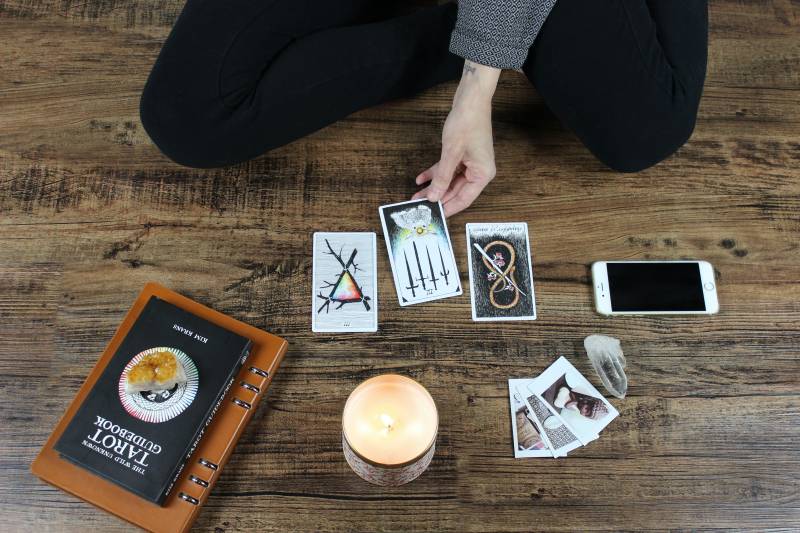Richardson isn’t alone in finding her own comfort through her spiritual work with clients. In the midst of massive job losses and economic uncertainty, many who previously enjoyed tarot and astrology as a pastime have turned to either monetizing their skills for the first time, or transforming their part-time interest into a full-time job.
When the pandemic hit, Jasmine Wolfe was already working part-time in numerology, astrology and tarot, but her job security came from a part-time position in childcare. In March 2020, when attendance suddenly dwindled, Wolfe decided to give up her day job. She says taking the plunge has paid off.
“I have absolutely seen an increase in business since lockdown last year,” the Sacramento resident explains. “It’s not surprising that so many people are called to divinatory practices at this time when things are so uncertain. Wanting to know what the future holds is something that has preoccupied humans for millennia.”
In addition to providing one-on-one readings, Wolfe now also offers courses, mentorships and coaching in numerology, astrology, tarot and witchcraft. “Tarot [provides] clarity and guidance,” she explains, “but I think astrology is the better tool for divination. It dates back to the oldest civilizations in Egypt, Babylonia, China. I think a lot of people have been drawn to following it this past year.”
During times of crisis, one of the most comforting things about prophecies and predictions is the sense they give us that nothing is accidental. That even the most traumatic, chaotic events are, in fact, all part of a larger plan. If some weird guy with a beard saw coronavirus coming 466 years ago, we tell ourselves, not only was it unavoidable, but it must be happening for a reason.
And if that notion gets you through this tough period, then it’s a notion that’s cruel to argue with.


